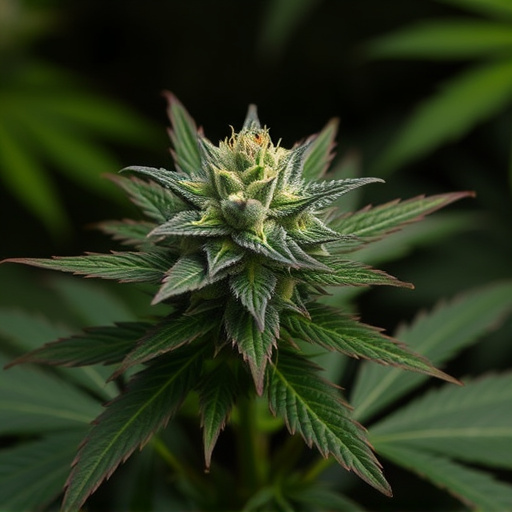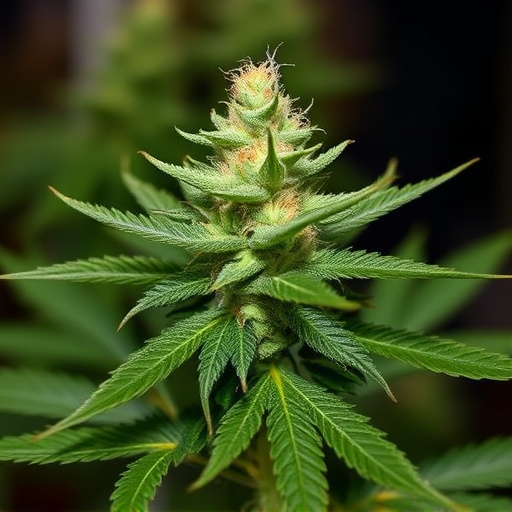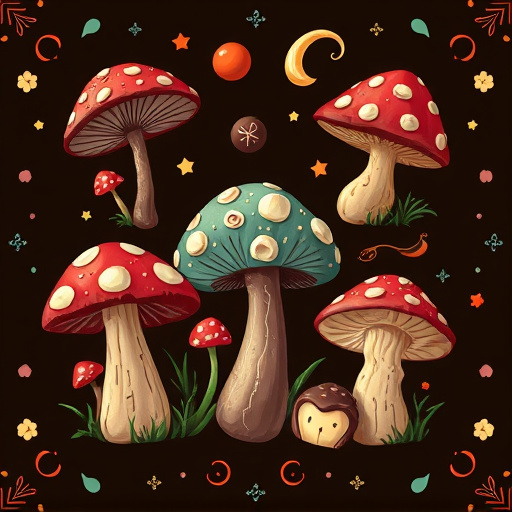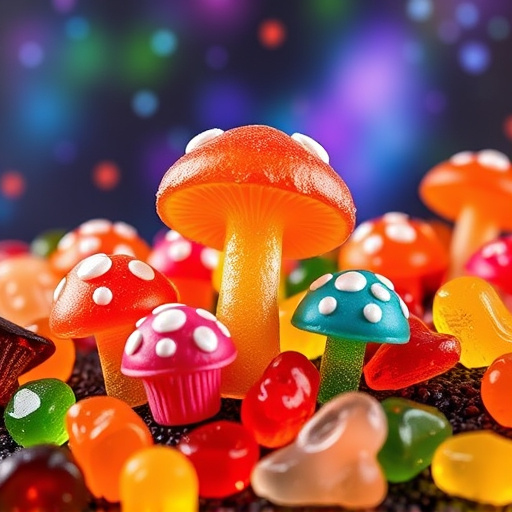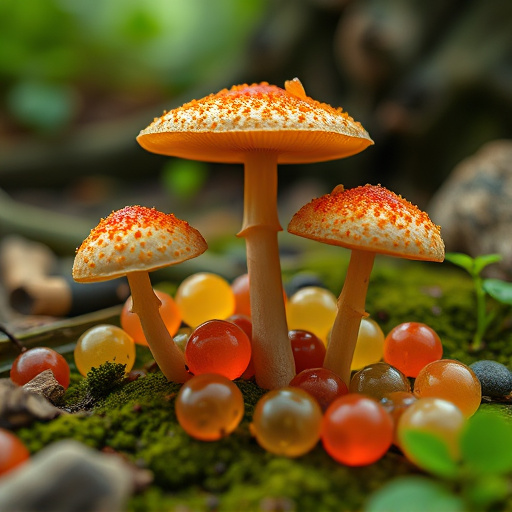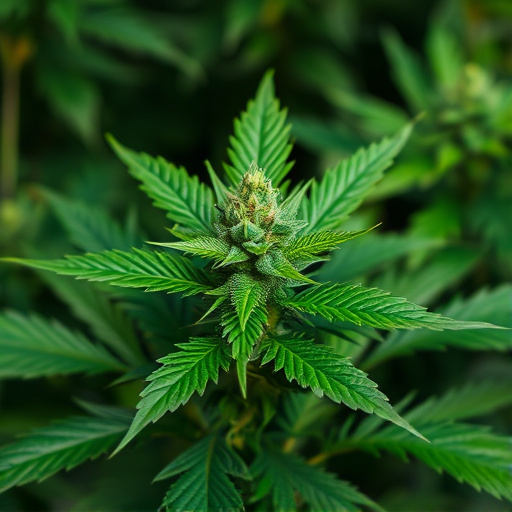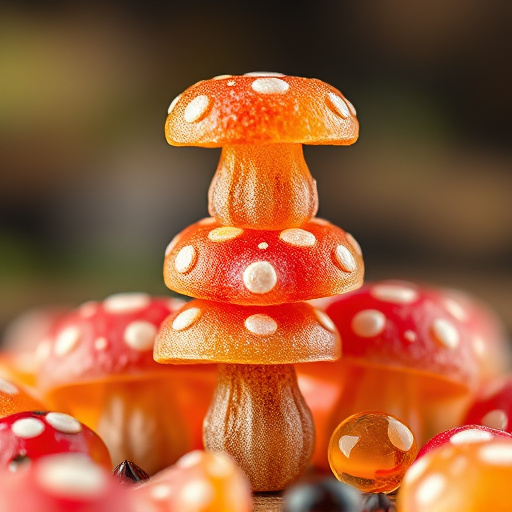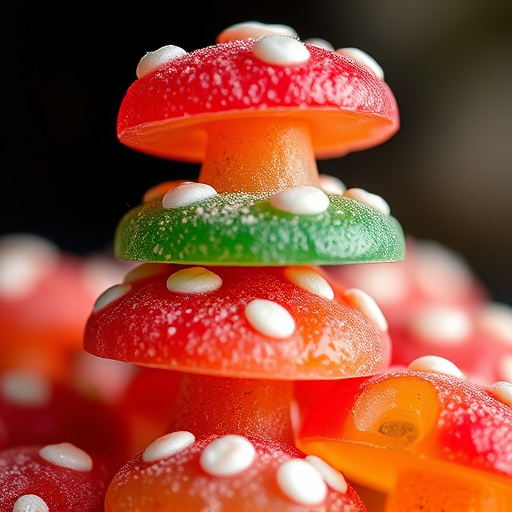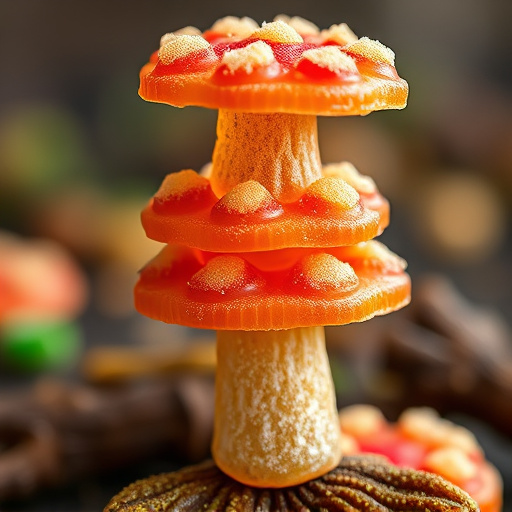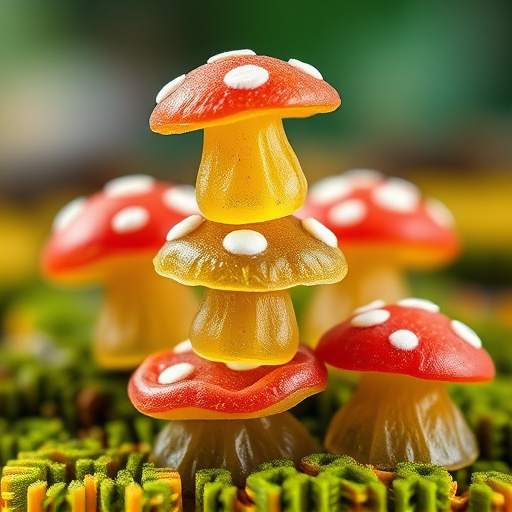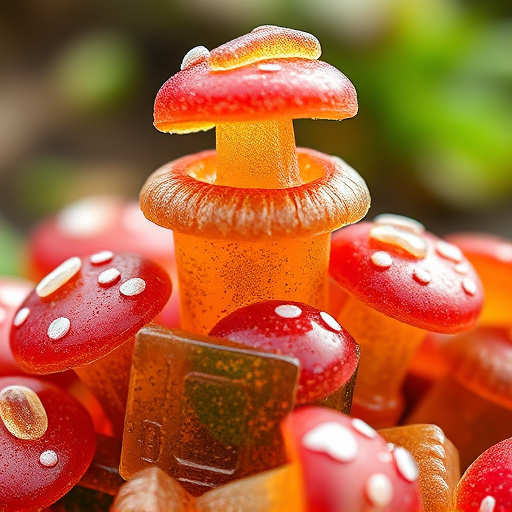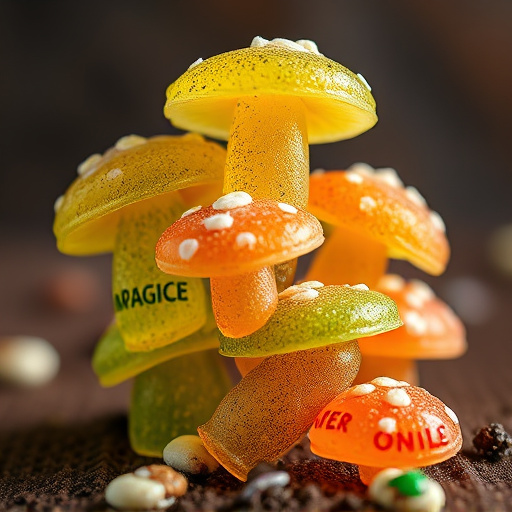The Legal Status of Magic Mushroom Gummies varies drastically globally, influenced by cultural views, health concerns, and regulatory frameworks. While some countries have decriminalized or regulated medical use under supervision, many others categorize psilocybin as a Schedule I drug, hindering therapeutic potential but raising safety risks from unregulated distribution. This disparity creates a complex legal landscape, with regulations evolving based on scientific evidence but lacking international standardization. Individuals must conduct local law research to access these products legally and securely.
“Exploring the Legal and Magical World of Magic Mushroom Gummies: Effects and Considerations. Magic mushroom gummies, a seemingly innocuous treat, harbor potent compounds with significant psychometric impacts. This article delves into the intricate legal aspects surrounding these edibles, offering an overview of global regulations and considerations for manufacturers and consumers. We dissect the active compounds, their effects, and the potential differences in potency compared to traditional mushrooms. Additionally, we explore safety guidelines, emphasizing dosage, microdosing, and environment as key factors for responsible consumption.”
- Legal Aspects of Magic Mushroom Gummies
- – Overview of the legal status worldwide
- – Variations in regulations across different countries
Legal Aspects of Magic Mushroom Gummies
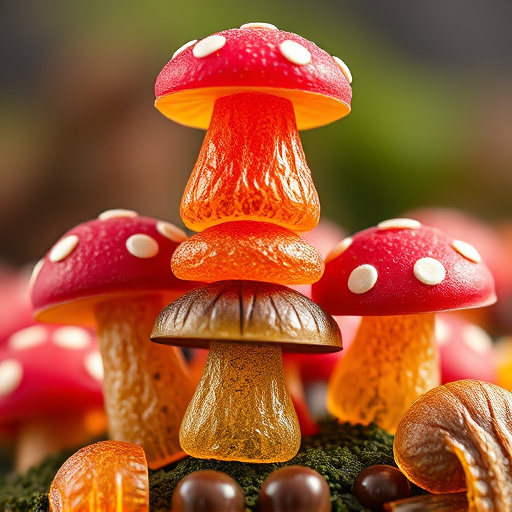
The legal status of magic mushroom gummies varies across different countries and regions, reflecting a complex interplay of cultural attitudes, health considerations, and regulatory frameworks. In many places, psilocybin mushrooms and their derivatives remain classified as controlled substances, subject to strict regulations or even complete prohibition. This is due to historical associations with recreational use and concerns over potential psychological effects. However, there’s a growing body of research suggesting therapeutic benefits for conditions like depression, anxiety, and PTSD, leading to changes in some jurisdictions.
Several countries and states have started to decriminalize or legalize magic mushrooms for medical purposes, allowing limited access under controlled conditions. This shift acknowledges the potential for psilocybin-based treatments to offer novel approaches to mental health care. As a result, the legal landscape is evolving, with discussions ongoing about how best to regulate and integrate these compounds into healthcare systems while ensuring public safety and addressing concerns related to misuse.
– Overview of the legal status worldwide
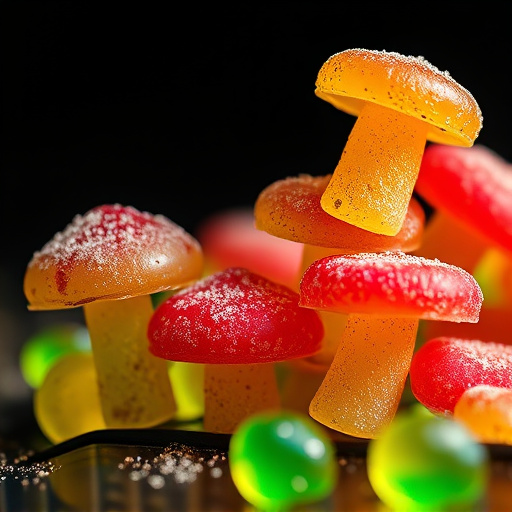
The legal status of magic mushroom gummies varies significantly worldwide, reflecting differing attitudes and regulatory frameworks toward psilocybin mushrooms and their derivatives. In some countries, such as the Netherlands and Portugal, the sale and possession of magic mushrooms are decriminalized or regulated under strict medical supervision, allowing for therapeutic use in controlled settings. Conversely, many other nations maintain stringent restrictions, classifying psilocybin as a Schedule I drug alongside more well-known substances like heroin and LSD, implying no accepted medical use and high potential for abuse.
This disparity has implications for both access to potential therapeutic benefits and public safety concerns. In places where magic mushroom gummies are legalized or regulated, they can be utilized in clinical trials exploring their effects on conditions such as depression, anxiety, and PTSD under close medical oversight. However, unregulated distribution or personal use in countries with stricter laws carries significant risks, including unpredictable dosages, contaminated products, and potential legal repercussions.
– Variations in regulations across different countries
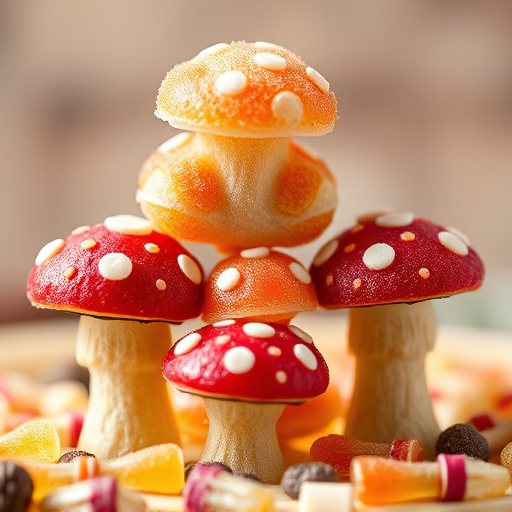
The legal status of magic mushroom gummies varies significantly across different countries, reflecting diverse cultural and regulatory perspectives. In some nations, these products are completely illegal, with strict penalties for possession or distribution, due to their classification as controlled substances. Other jurisdictions have taken a more permissive approach, allowing for medical use under certain conditions or even decriminalizing recreational use. This disparity can make navigating the legal landscape challenging for both consumers and businesses interested in this market.
Regulations around the Legal Status of Magic Mushroom Gummies are constantly evolving, with some regions slowly easing restrictions based on emerging scientific evidence and changing societal attitudes. However, international cooperation and standardization are lacking, leading to confusion and inconsistencies. As a result, individuals seeking access to these products must carefully research local laws to avoid legal repercussions and ensure safety in their consumption.
Understanding the legal aspects of magic mushroom gummies is crucial before exploring their effects. The global landscape regarding these products is diverse, with varying regulations from country to country. While some places have embraced medicinal and recreational use, others maintain strict controls due to potential psychological impacts. Knowing the legal status in your region is essential for navigating this space responsibly, ensuring access to accurate information, and avoiding any legal repercussions associated with magic mushroom gummies.
